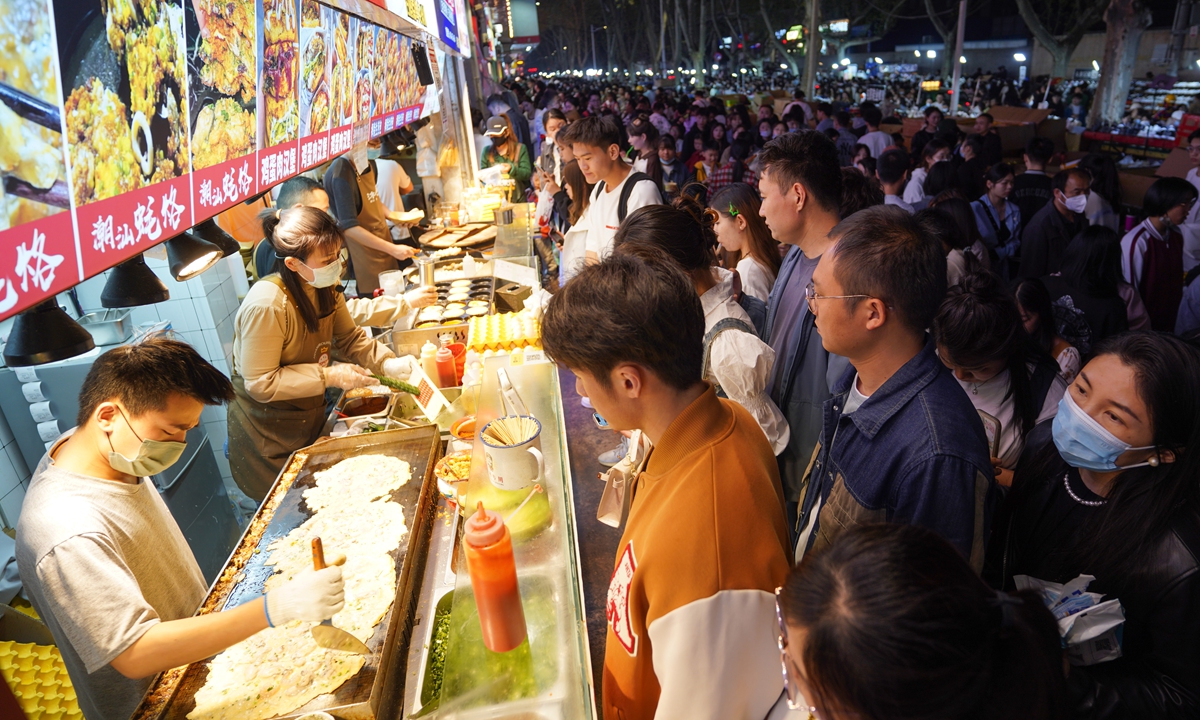
Young people wait in front of snack stalls in a night market in Zhengzhou city, Central China's Henan Province, on April 2, 2023. As the weather warms up, many provinces and cities across the nation have stepped up efforts to boost their night economies in order to spur consumption growth. Photo: VCG
The fall of consumer prices in July is "within normal monthly fluctuations," and there is "no deflation" in China, said Fu Linghui, a spokesperson of the National Bureau of Statistics (NBS), on Tuesday, responding to a Western media question over declining prices in the country.
The Chinese economy remains on the recovery track, while the broad M2 money supply and market liquidity are believed to be ample, Fu said, adding the CPI declined year-on-year in July, but the index saw a positive growth from June after dropping for five consecutive months.
Due to the high base in the corresponding period of 2022,
China's CPI declined 0.3 percent year-on-year in July but was up by 0.2 percent from June, data from the NBS showed.
Fu said the year-on-year CPI slide in July is mainly due to food price drops and the higher base last year, noting that the negative CPI reading last month is most likely to be a short-term phenomenon.
In July, food prices dropped 1.7 percent year-on-year, compared with a rise of 2.3 percent year-on-year in the previous month, dragging down CPI by 0.3 percentage points. The price of pork fell 26 percent year-on-year, affecting CPI big 0.4 percentage points, Fu said.
Excluding food and energy, the country's core CPI rose 0.8 percent year-on-year in July, expanding 0.4 percentage points from June. "This shows positive changes in market supply and demand," he said.
Moving forward, year-on-year CPI growth rate is expected to gradually come back to normal levels, thanks to expanding domestic demand and further improving supply and demand relation as the economic recovery continues to gain pace in the coming months this year, Fu said.




